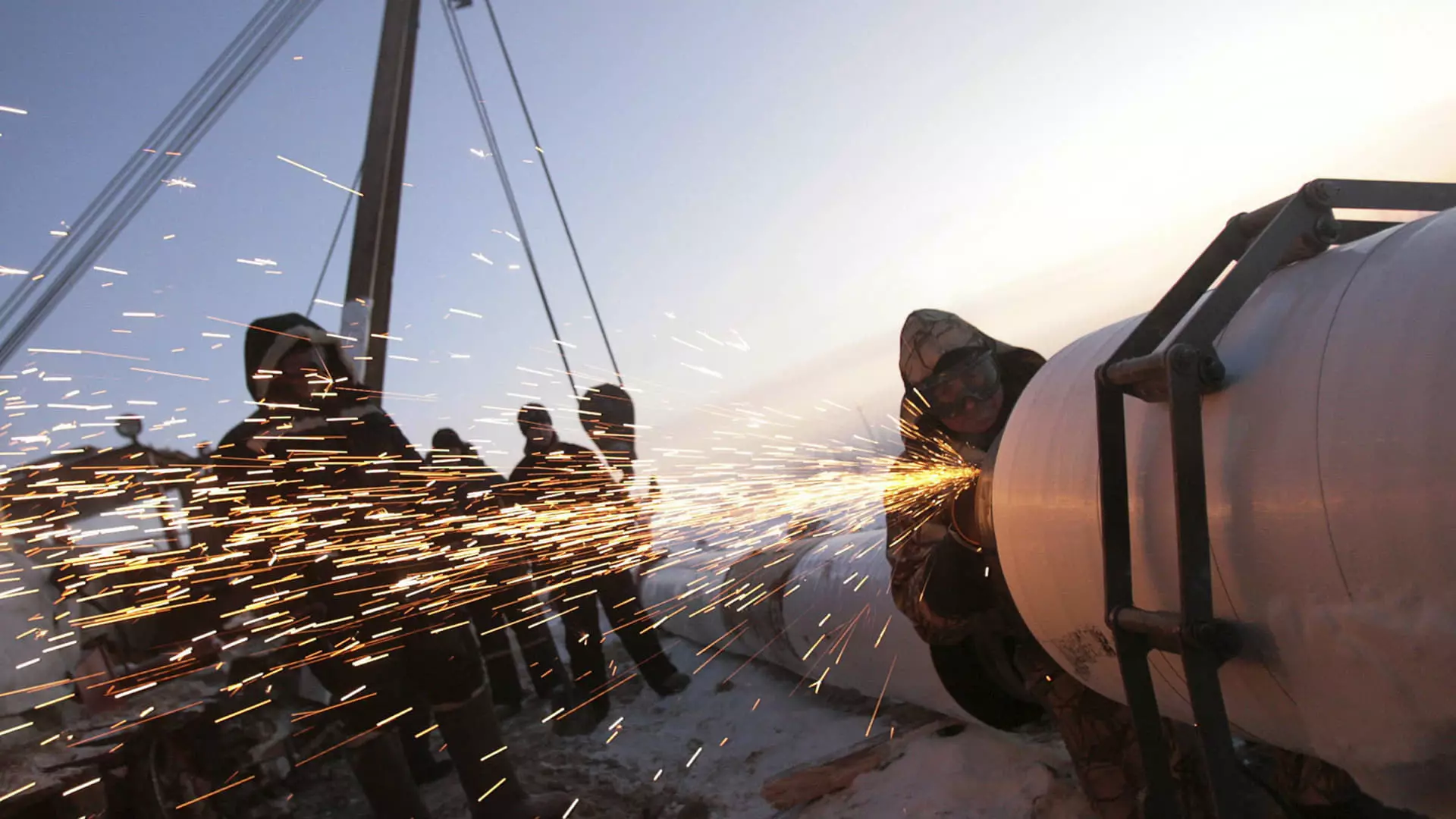The geopolitical landscape surrounding energy supplies in Europe continues to evolve dramatically, especially in light of ongoing tensions arising from the war in Ukraine. On one hand, the Russian gas conglomerate Gazprom managed to maintain consistent gas deliveries to Europe through Ukraine, yet it faces increasing isolation as European nations strive to diminish their reliance on Russian energy sources. This article delves into the intricate dynamics at play in the European energy market, the reasons for Gazprom’s waning influence, and the broader implications of these developments.
Historically, Russia has served as a keystone supplier of natural gas to Europe, contributing significantly to the continent’s energy security. This was particularly evident before the onset of the Ukraine conflict when Gazprom accounted for a staggering 35% of Europe’s gas requirements. However, the geopolitical crisis has instigated a rapid reassessment of energy dependencies. Following extensive damage to critical infrastructure such as the Nord Stream pipeline in 2022, which has been attributed to sabotage, European nations are now navigating a complex landscape motivated by the need for energy diversification.
Current data indicates that Austria recently received notification from Moscow of an impending cessation of gas supplies to its state-owned energy company, OMV. This alert, which is linked to a recent arbitration ruling regarding unfulfilled contracts, marks a pivotal point in Russia’s dwindling presence in the European gas market. As a reaction to this ruling, Austrian regulators confirmed the termination of Gazprom’s gas deliveries to OMV, which traditionally accounts for a substantial percentage of Austria’s gas flow.
The Urengoy-Pomary-Uzhgorod pipeline, a legacy from Soviet times, serves as one of the final conduits for Russian gas destined for Europe. However, it’s essential to recognize that this pipeline is also set to close by the end of the current year as Ukraine opts not to extend its transit agreement with Russia. This decision underscores Ukraine’s desire to eliminate Russian influence over its energy infrastructure in light of the ongoing conflict. As a result, gas supplies to crucial regional markets such as Slovakia and the Czech Republic are poised to face significant disruption.
Despite Gazprom announcing stable gas flows of approximately 42.4 million cubic meters to Europe via Ukraine, the actual nominations for flow into Austria hint at a troubling trend of reduced demand, showcasing a 16% decrease compared to earlier trends this month. The circumstances illustrate the shifting focus of European countries away from reliance on Russian energy sources, with countries such as Norway, the United States, and Qatar gaining market share as alternatives.
Repercussions on Russian Economics and International Relations
The ramifications of these developments extend far beyond immediate gas supply figures. The long-term economic impact on Russia is undeniable; as the financial lifeline provided by European customers dwindles, repercussions will likely be felt in various sectors of the Russian economy. It is noteworthy that Gazprom is attempting to offset high arbitration costs awarded to OMV by withholding payments for gas supplied to Austria. This contentious situation epitomizes the intricate interplay of legal and economic factors currently shaping the energy market.
Amidst these evolving dynamics, diplomatic overtures are emerging. Recently, German Chancellor Olaf Scholz engaged in a conversation with President Vladimir Putin for the first time in an extended period. Discussions centered on the notion that Russia has consistently met its contractual obligations, showcasing a willingness to cooperate if Europe expresses a reciprocal interest. This dialogue highlights the complexities of European energy dependence on adversarial suppliers, which ultimately calls into question the future of international energy agreements.
The Implications of Dwindling Gas Supplies
Without Austria’s involvement, Russian gas exports will become even more concentrated, primarily feeding Hungary and Slovakia, with Hungary relying heavily on gas transported via Turkey. This narrowing of markets signifies a critical juncture for Gazprom and the broader Russian energy industry.
The landscape of European energy supply is subject to dramatic fluctuations, primarily as a result of ongoing geopolitical tensions. Gazprom’s diminishing role represents a transformative moment for Europe’s pursuit of energy independence. The pivot towards alternative suppliers demonstrates a collective recognition among European nations that energy security should not presuppose reliance on historically established suppliers, particularly those whose actions undermine regional stability. As the situation continues to unfold, a strategic reassessment of energy policies will be paramount for the future of Europe’s energy landscape.


Leave a Reply